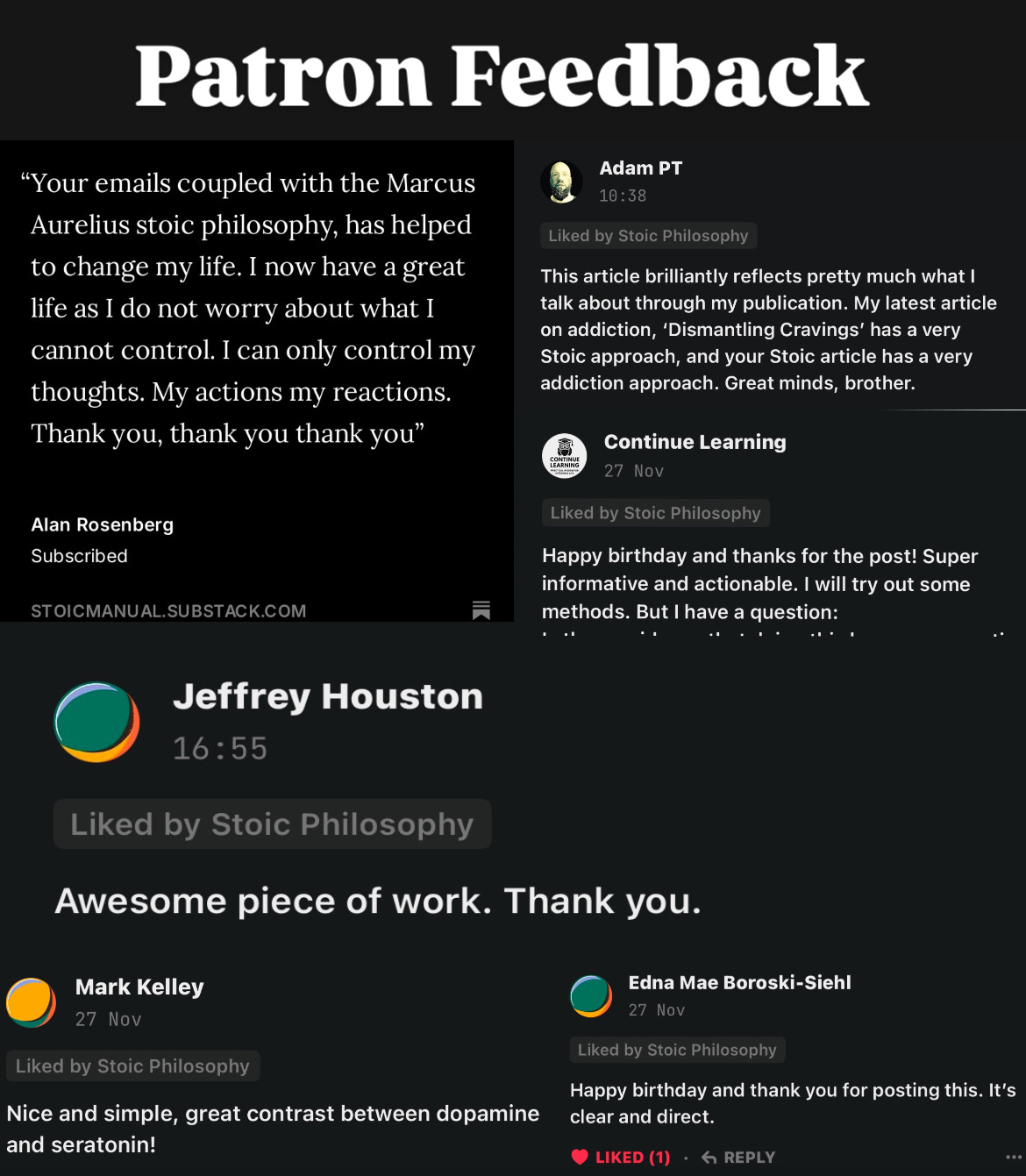#14. Boost Your Memory
With a sharper memory, you not only stay ahead of the curve but feel more confident and mentally agile in everything you do.
The ‘Neuroscience-based Tools’ section is a companion for The Stoic Manual to help you become wealthier, happier & more powerful by enhancing your resilience, energy, mood, motivation, testosterone, weight loss, learning rate, relationships, focus, and overall health—by Dr. Antonius Veritas. Complement this with the ‘Lead to Win’ & the Le Monde Élégant sections.
P.S: Skip to the end for a mini-course, a step-by-step guide to boost your memory using behavioural tools & some supplements. This is how I became a doctor and a good writer. Worth $3,500.
Ever walked into a room and completely forgotten why you were there?
Or struggled to recall a name, a fact, an experience, or an idea just when you needed it most—like in an interview?
Your brain might even feel foggy sometimes.
Memory lapses like these can be frustrating, even embarrassing, and they leave you feeling less sharp in a world that demands quick thinking and focus.
Now, picture this: You walk into that same room with complete clarity.
Your thoughts are sharp, your recall is instant, and you can easily retain new information—whether for work, creative pursuits, conversations, learning, or simply navigating everyday life.
With a sharper memory, you not only stay ahead of the curve but feel more confident and mentally agile in everything you do.
You set yourself for more wealth, happier relationships, and power.
This transformation isn’t just a dream—it’s entirely within your reach.
In today’s entry, we’ll explore the fascinating neuroscience of memory formation.
And more importantly, you’ll learn proven, science-backed strategies to sharpen your memory, focus, enhance your learning, and unlock the full potential of your brain.
Keep scrolling.
Last week’s entry:
Memory Formation
Memory is a consequence of neural circuits becoming more likely to activate in specific patterns.
Sensory inputs—such as sights, sounds, or tactile stimuli—are transformed into electrical and chemical signals by the nervous system.
This process involves the brain converting external events into the internal language of neurons.
Memory formation is not uniform across the brain.
Specialized regions orchestrate it.
Hippocampus
The hippocampus is the brain’s central hub for creating explicit (declarative) memories.
This seahorse-shaped structure is essential for encoding new facts and events, though it does not store memories permanently.
Once consolidated, these memories are distributed across other regions of the brain.
Cerebellum
Responsible for implicit (procedural) memories, the cerebellum enables us to perform complex motor tasks, like riding a bike, without conscious effort.
Neocortex
The neocortex plays a significant role in long-term storage of both explicit and implicit memories, serving as a vast repository for information and experiences.
Types of Memory
Memory can be categorized based on its duration and the type of information it processes:
Short-Term Memory
Temporary and limited in capacity, short-term memory allows us to hold information briefly, such as a phone number we just heard.
Working Memory
This subset of short-term memory actively processes and manipulates information, enabling tasks like problem-solving and reasoning.
Long-Term Memory
Long-term memory is more enduring and expansive. It is divided into:
Explicit Memory
Conscious memories of facts (semantic memory) and events (episodic memory).
For example, recalling your first day at school is an episodic memory.
Implicit Memory
Subconscious memories, including procedural skills (like playing a piano) and conditioned responses.
Emotional Memory
Emotional memories are deeply ingrained and often involve strong feelings, whether positive or negative.
It’s closely tied to the amygdala.
The Biology of Memory Encoding and Retrieval
Memory formation depends on a process called "synaptic plasticity," where repeated activation of a neural circuit strengthens the connections between neurons.
This concept, captured in Donald Hebb’s famous postulate—“neurons that fire together, wire together”—is the foundation of learning and memory.
Synaptic plasticity occurs through mechanisms such as:
Long-Term Potentiation (LTP)
This process strengthens synapses, making it easier for neurons to communicate. It is especially active in the hippocampus during memory formation.
Neurochemical Signaling
Key molecules, such as glutamate and gamma-aminobutyric acid (GABA), regulate the excitation and inhibition of neurons.
Neurotransmitters like dopamine, norepinephrine, and serotonin also modulate memory formation, often by influencing attention and emotional states.
Neurogenesis
While most memories are formed by strengthening existing connections, the hippocampus exhibits some level of neurogenesis—the creation of new neurons—which can contribute to memory encoding.
Retrieval, on the other hand, involves reactivating the neural circuits that were engaged during encoding.
Successful retrieval depends on cues, context, and the strength of the original memory trace.
Emotional Intensity and Memory Enhancement
Emotionally charged experiences are often better remembered than neutral ones.
This phenomenon is rooted in the brain’s response to stress and arousal.
When we encounter something emotionally intense, the following occur:
Release of Adrenaline and Cortisol
The adrenal glands release adrenaline (epinephrine) and cortisol into the bloodstream.
These hormones enhance the activity of the amygdala and hippocampus, creating a heightened state of alertness and facilitating memory encoding.
Amygdala-Hippocampus Interaction
The amygdala, which processes emotions, interacts with the hippocampus to prioritize emotionally salient memories.
One-Trial Learning
Extremely emotional or traumatic events often result in "one-trial learning," where a single exposure creates a lasting memory.
Practical Tools to Boost Your Memory
The behavioural tools and supplements I’ve listed below will improve your memory by a significant margin.
You’ll be in constant awe of yourself.
This information is what helped me pass my medical school exams to become a doctor.
I swear by them.
And it’s how you’ll win in business, work, school, relationships, and creative pursuits.
Here are the tools…
Do you like this entry so far? ⭐️
Support the publication to read the rest and access 100+ practical insights and Mini-courses to help you apply Stoicism for a happier, wealthier life—Lead to Win, Optimize Your Health with Neuroscience-based tools & Stoic Essays.
Join 14,000+ other readers.
Here’s what my supporters are saying.






